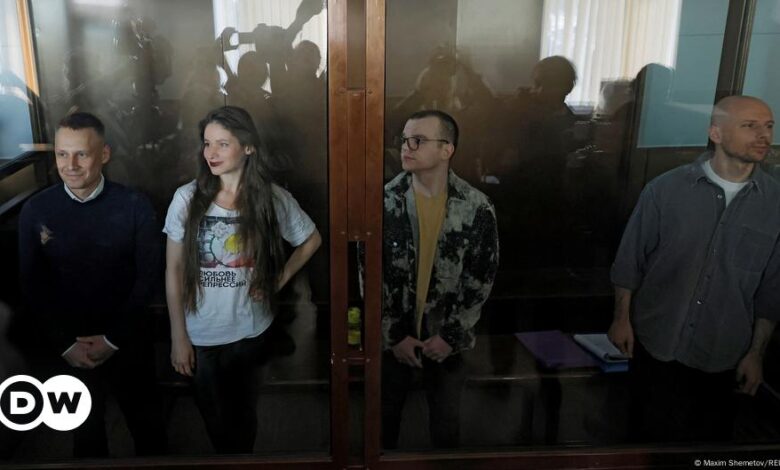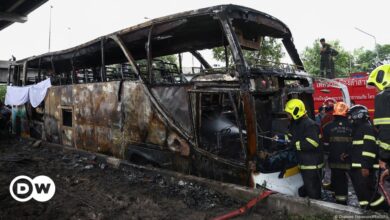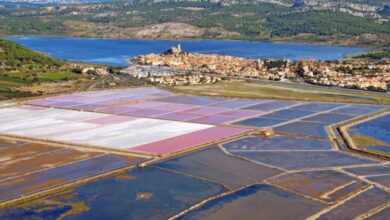Russia: Journalists report inhumane conditions in custody – DW – 10/18/2024

Two journalists, Konstantin Gabov and Sergey Karelin, who stand accused of supporting an “extremist organization,” have detailed the harsh conditions of their pre-trial detention in Moscow. In early October, the two men were transferred to a prison known as “Matrosskaya Tishina” (“Sailors’ Silence”), which is notorious among human rights organizations for its bad conditions.
DW has obtained a copy of a letter written by Konstantin Gabov: “The cell is overcrowded. Another inmate and I sleep on the floor,” he reports. “During the day we sit on a bench without a backrest, as there’s no space. The mattress, blanket and pillow are worn out, and there are bedbugs. The atmosphere here is oppressive.”
Prior to his arrest in April, Gabov worked as a producer for Reuters news agency. Before that, he had also worked for DW’s Moscow bureau. “It feels like being held in a basement. [There’s only] one small window somewhere high up,” Gabov writes in the letter.
‘Total lack of privacy’
Cameraman Sergey Karelin also worked for DW in Moscow, as well as for the Associated Press (AP) news agency. He, too, describes inhumane detention conditions. “I was transferred to cell 246 — four bunks for eight people,” the journalist wrote in a letter to the Novaya Gazeta newspaper. He reports that the extra inmates slept “on folding cots with a hole in the middle,” lying “side by side and head to foot.”
Karelin complains about the “total lack of privacy” in his cell. “The inmates of this cell face serious charges; one is accused of high treason. But these are young lads; only one man is older,” Karelin writes.
Accused of collaborating with an ‘extremist organization’
Karelin’s lawyer, Katerina Tertukhina, describes the detention conditions as “torture,” and says they prevent her client from preparing for his trial. Gabov, Karelin and two other journalists — Antonina Favorskaya and Artyom Kriger — are being tried on charges of involvement in a so-called “extremist organization.”
They are accused of supporting the team of the Kremlin critic Alexei Navalny, who died in prison on February 16 of this year. The journalists are said to have produced photographic and video material for Navalny’s YouTube channel, for which they could face six years in jail. The defendants deny the charges.
The YouTube channel “Navalny LIVE” is still being run by members of Navalny’s Anti-Corruption Foundation (FBK), after the opposition politician’s death. Russian authorities have designated the FBK an “extremist” group, and its members and supporters face criminal prosecution in Russia.
A hearing in the journalists’ trial took place behind closed doors on October 17. Before their arrest, Favorskaya and Kriger worked for the independent news agency Sota Vision, reporting on the trials of political prisoners. Favorskaya had covered Navalny’s trials, and had visited the “Polar Wolf” penal colony in Kharp, in the Arctic Circle, where Alexei Navalny died.
After Navalny’s funeral, Favorskaya documented people laying flowers at the cemetery where he was buried. She was arrested on March 17, on one of her visits there. Karelin and Gabov were arrested one month later, and Artyom Kriger in June.
This article was originally published in Russian




